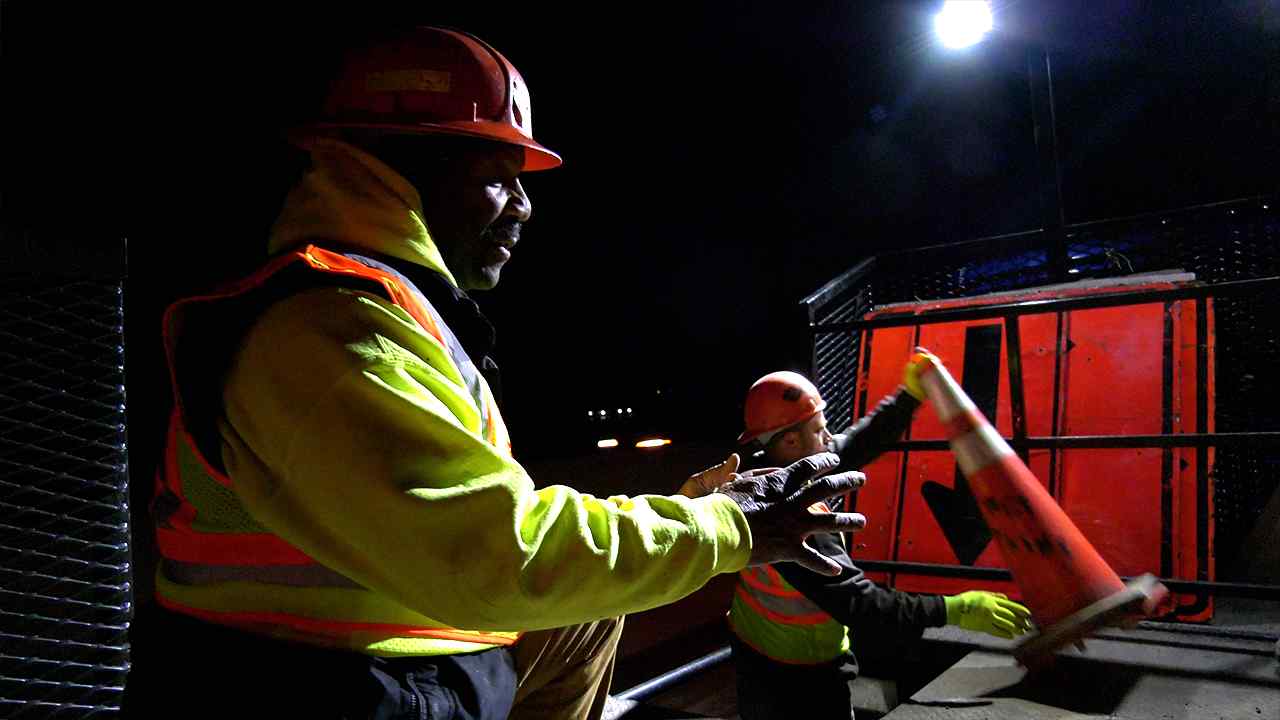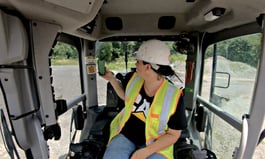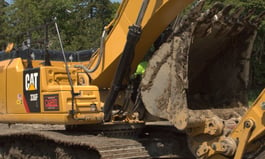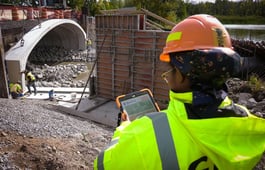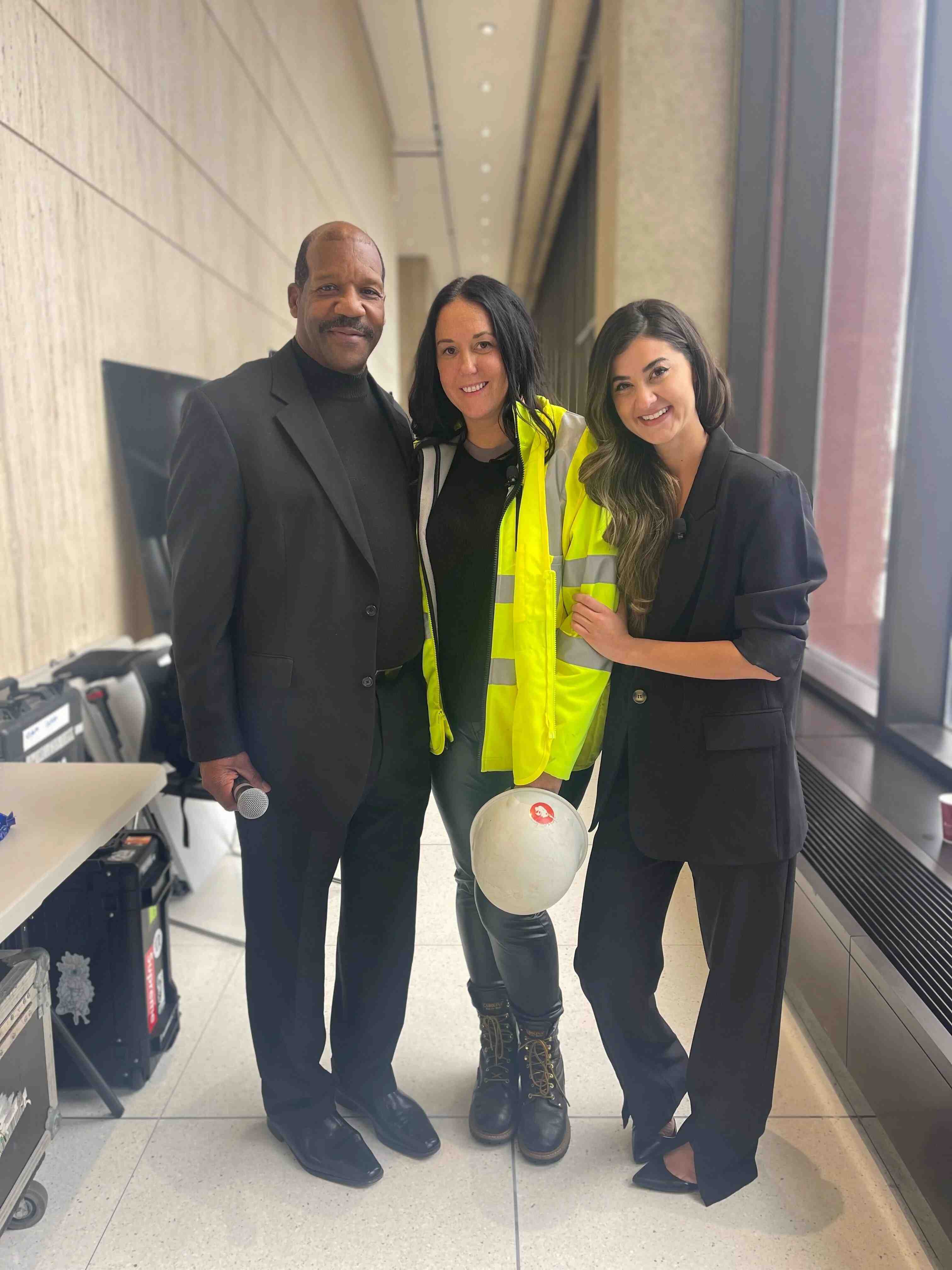
Did you know that over 40% of the U.S. construction workforce will retire over the next ten years? This shortage in our industry is expected to rise over the next two years. Construction work is not for the faint-hearted or unmotivated. It takes problem-solving and the physical fitness to survive in this material-intensive industry.
Hiring construction workers has always been hard. And the numbers show- it is still a challenge. Technology gives us data to see the number of construction workers that we still need in order to rebuild America’s roads, bridges, and highways the way the American people need us to.
In the past, construction companies encountered challenges in recruiting and teaching younger generations. Construction work was considered harsh and demanding. However, with advancements in technology that make construction less harsh on the body, things have changed. Young people don't mind working in the construction industry. They appreciate the stability it provides financially, the group camaraderie it brings, and ability to work with your hands to make something out of nothing. Working in the construction industry also allows you to work outside, surrounded by the elements and the raw power of nature. You are not confined to a desk, or stuck in front of the computer. People in construction enjoy creating.
Despite the advancements in technology and advantages to working in the construction industry, construction companies are encountering similar challenges as they faced in the 1950’s. Younger workers can’t learn advanced, niche skills fast enough for the work that is on the table.
Additional challenges placed on young construction workers include the scarcity of construction learning resources (i.e., credible videos that can be Googled or searched on Youtube), the manual-intensive nature of construction work, and the lack of psychosocial support (therapy is still not considered “normalized” in construction). According to HR DRIVE, construction jobs ranked almost last for Gen-Z, attracting a meager 16.7% of the 29,000 respondents. Previously, younger generations hardly succeeded in the construction industry thanks to the availability of more uncomplicated opportunities. The learning process requires patience and dedication, qualities that young people are lacking.
Fortunately, the status quo has changed thanks to scarce employment opportunities and inflation. These two factors have significantly played a key role in transforming the mindsets of the younger generations. They're more open to construction jobs. CAHill TECH’s master trainer James Jones, however, said that most new and aspiring construction workers are unsuccessful because they don't have the right mindset to succeed in this industry.
The average age for construction workers is 42.5 years, according to the U.S. Bureau of Labor Statistics. Sadly, the rate at which older workers leave the scene is much bigger than the rate at which younger employees join the industry. A 2018 Current Population Survey revealed that the number of construction workers aged 55 and above increased by a meager 5% between 2011 and 2018, while the number of workers aged between 25–54 declined by 7% in the same period.
The training, operation procedures, and safety regulations used in the '50s are still predominant. So, how can the two generations collaborate to work seamlessly?
A 20+ Year Construction Veteran's Story
The story of James Jones is proof that all isn't lost. The OSHA-certified professional works for a leading construction-tech company, CAHill TECH. While James has been in the construction industry for 22 years, it hasn’t been handed to him. He had to clear numerous obstacles to be where he is today. He started as an electrical apprentice, but soon lost the job due to underperformance. However, he remained optimistic and focused thanks to a hunger for success. The ambitious, but confused, youthful James was down, but not out. With hope, effort, and persistence, he knew he could make a meaningful change in the world. It was his time, and he was not going to let life pass him by.
James approached a mentor who was willing to help him start a career in the construction industry. But to be successful in this path, the aspiring construction professional had to deepen his resolve and develop a different mindset, a fresh perspective on life. He learned from his mentor the following principles that have been his compass to date:
- Have a mindset of always being to work on time;
- "On time" means 20 minutes early
- Be assertive and a self-starter;
- Be available to work;
- Adapt to change and be flexible, and
- Ask questions or seek clarification when unsure.
It wasn't easy for James to be disciplined enough to attain the mental state recommended by his mentor, but he was determined to make things work and transform his life. For instance, he decided to become active wherever he worked rather than passive. He asked for opportunities, spoke out when he didn’t understand something, and was the first to help a colleague in need.
Finding Passion through Construction: Learning and Transitioning
How did James transition so fast? His career change and smooth transition were necessitated by the following:
- Taking opportunity quickly and running with it
- Having the capacity to collaborate with others
- Questioning his trainer
- Being keen and practicing
- Being dependable
- Prioritize quality output
- Learning fast
James' mentorship provided enough experience to advance his career. But what was his strategy? He worked under the supervision of his mentor for four years to become a journeyman. The learning process was that long because a journeyman must put in a minimum of 4,000 hours to learn the ropes and become competent or ready for the real world. James states that besides working on yourself, working with and under others, can shorten the learning curve. He called out the fact that not every young construction worker will have the opportunity to have an apprenticeship, or good mentor. This was a gift to him.
Everyday presents a new learning opportunity, so you must be a fast learner to be successful in construction. Most days are like entering a new level in a video game. You know what buttons to press and how to jump, but new challenges and situations always present themselves. Be open to change and learn to ask questions. “Learners must remember that some things are taught, while others are caught.” says James “Being attentive and watchful can motivate your trainers to pass on more knowledge to you and consider you if any opportunity comes up.”
James currently empowers younger generations with his career-long experiences spanning over two decades. Although he's now retired, learning has remained a constant factor in his life. He's still learning how to do his daily tasks better than he did the day before.
How Has the Hiring Competition Been Over the Years?
In James' own words, “competition in the construction industry has always been there, thanks to ever-changing trends.” That said, “you must be on a constant learning trajectory to remain competitive and marketable.” The bridges and roads he's worked on in his exciting career played a significant role in showcasing his skills and experience, he in turn provided a competitive edge to the company he worked for helping them win against other contractors looking for similar work. A mouth-watering resume and top-notch skill sets are useless if one isn't ready to continue learning, collaborating, and helping others. The primary objective is to make small daily changes. Instant success or riches fade if not primed with discipline.
How to Get Young Construction Workers to Work for You
“Marketing construction work to the younger generations is not easy or quick”, according to James as well as numerous industry authorities. “First, construction work is physically-intensive and hence, unappealing to the younger generations. Second, this type of work requires resilience.” Working in service to the team, and with a humble mindset, are qualities that young people often lack.
But appealing to young construction workers is doable. Construction experts believe that talking about careers should start from childhood, especially before youngsters graduate from high school. Trades education can be taught as early as 6th grade, similar to woodworking or sewing. Apprenticeships or internships in the trades can be offered in middle and high school as ways to build professional experience, knowledge, and a resume.
Job tours can also help appeal to construction work to younger generations. For instance, children or the youth can be given a chance to explore real-life construction projects, such as welding, plumbing, and assembling, among others. After all, some people are natural-born technicians. But how will they discover their potential and talents without the opportunity to explore?
How To Create A More Fulfilling Construction Career with aQuiRe™
While there are many options for learning about construction today, apps are the most convenient and cost-effective. Aspiring, novice and accomplished construction professionals can leverage apps like aQuiRe™ to learn, improve their skills, unlock undiscovered potential, and manage their daily tasks.
Previously, learning niche skills were difficult for construction professionals. They had to learn on the job and manually manage tasks. Some skills could only be taught when something went wrong, which was the only opportunity to show a newbie the ropes.
The effects of only operating when problems arise include reduced efficiency and lengthened learning curves for young construction workers. Today, the construction industry is busy and short of staffing. Work cannot stop because team members need to be trained. There are industry-wide apprenticeship and mentorship problems for the heavy highway, road, and bridge industry.
Many young people want to learn about construction but face numerous obstacles. For instance, some veteran mentors can't effectively pass on knowledge due to “personality issues” and other challenges. For example, some veterans don’t like traveling to new job sites, they don’t like teaching, or aren’t good at explaining new concepts to new learners. That said, learners should identify skilled and experienced construction industry veterans for mentorship. Knowledge should continue to be transferred to upcoming generations to ensure the construction industry doesn't die slowly. It's okay to make mistakes when learning new niche skills or re-learning operations procedures. Asking questions and seeking clarity are part of the learning process. It’s not okay to make mistakes at 4am on a job site, blocking 4-lanes of traffic, and trying to operate a new piece of equipment.
Considering a Training Program for Construction Workers?
Construction workers are exposed to numerous hazards daily. Think about slip and falls, exposed machine parts, injury from construction equipment, electrocutions, and inhalation of silica dust and asbestos. Construction companies should identify the potential risks affecting their workers and implement safety training to ensure employees are knowledgeable and better equipped for safety.
Collaborating with safety, and compliance experts, such as CAHill TECH, is the first step toward empowering construction employees. Besides offering training CAHill TECH's online platform— aQuiRe™, has numerous powerful features. Construction companies can use recordkeeping and reporting tools on the platform to enhance safety standards to meet the prescribed standard safety regulations. aQuiRe is user-friendly and saves hours of time tracking and pulling reports, meaning companies can assign safety training, track, and print reports for insurance providers, local/state/federal governance, operations, etc.
aQuiRe uses video modules and dynamic resources for detailed yet straight-forward teaching. By training aspiring, novice, and accomplished construction professionals, companies can save money that would have been spent on project reworks and insurance premiums.
For more information about aQuiRe™, visit CAHill TECH or schedule a free demo.
